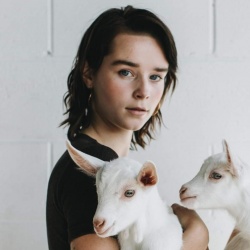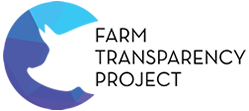News & Media > Editorials > About Wool and the Alternatives
About Wool and the Alternatives
A common misconception sees many of us believe that the wool industry is one that is harmless to sheep, completely different to the fur and leather industries. Unfortunately, this could not be farther from reality. Sheep are regularly and legally mutilated, they are often mistreated and abused, and they are slaughtered for meat.
Mistreatment and abuse
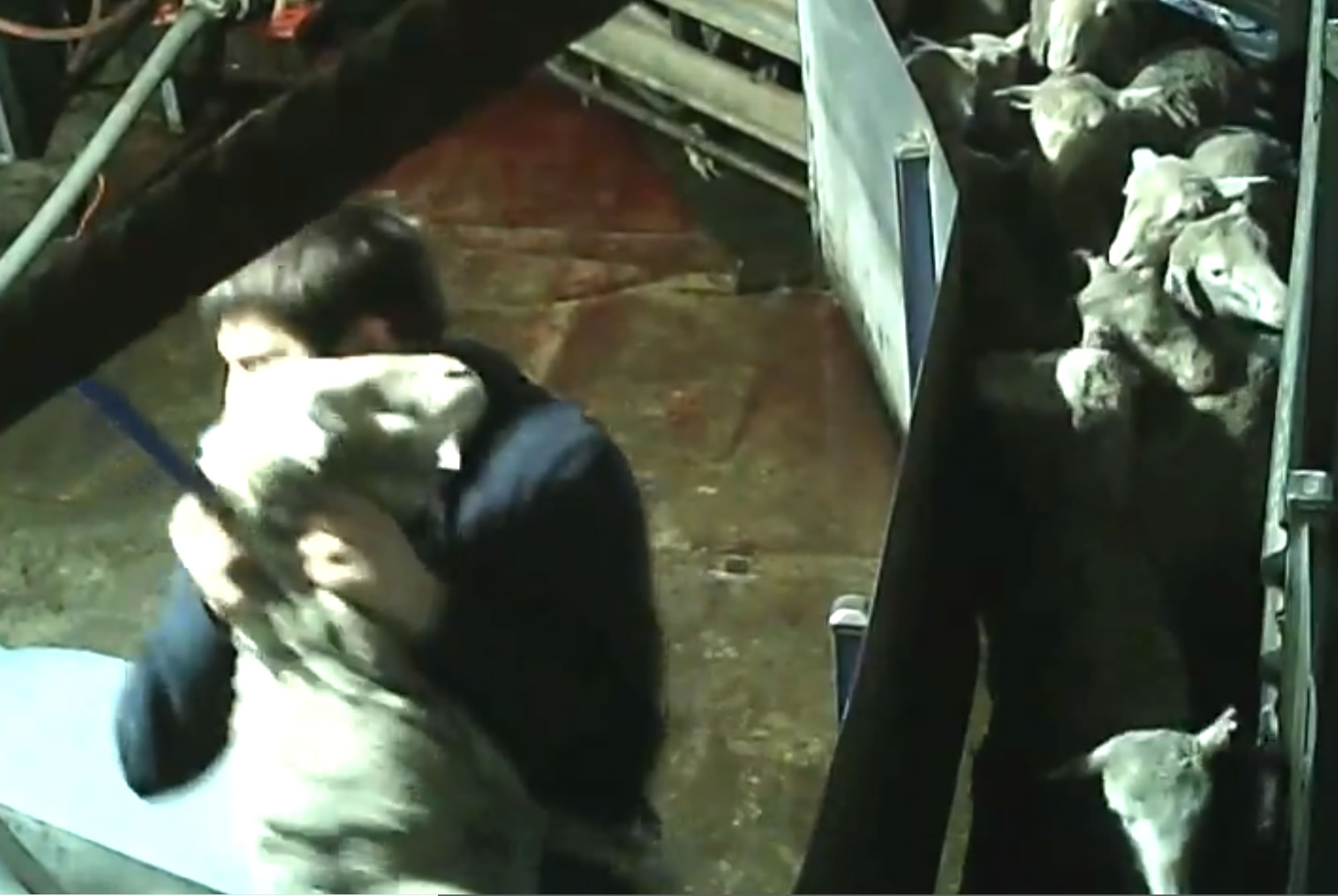
Sheep are prey animals and so are very easily startled and stressed, with an intense instinct to flee from danger. Because humans have selectively bred sheep for so long, unlike the wild ancestors of sheep, mouflon, domesticated sheep must be shorn. If we did not breed animals for the purpose of farming and slaughtering, this would no longer be a concern for animal wellbeing.
Pinned down, shearing is an extremely stressful process for these animals, even when done as calmly as possible. As sheep try to escape during shearing, it is common for them to be cut. Mishandling, aggression and violence is commonly seen is shearing sheds with sheep being thrown, beaten and stomped on.
Slaughter industry
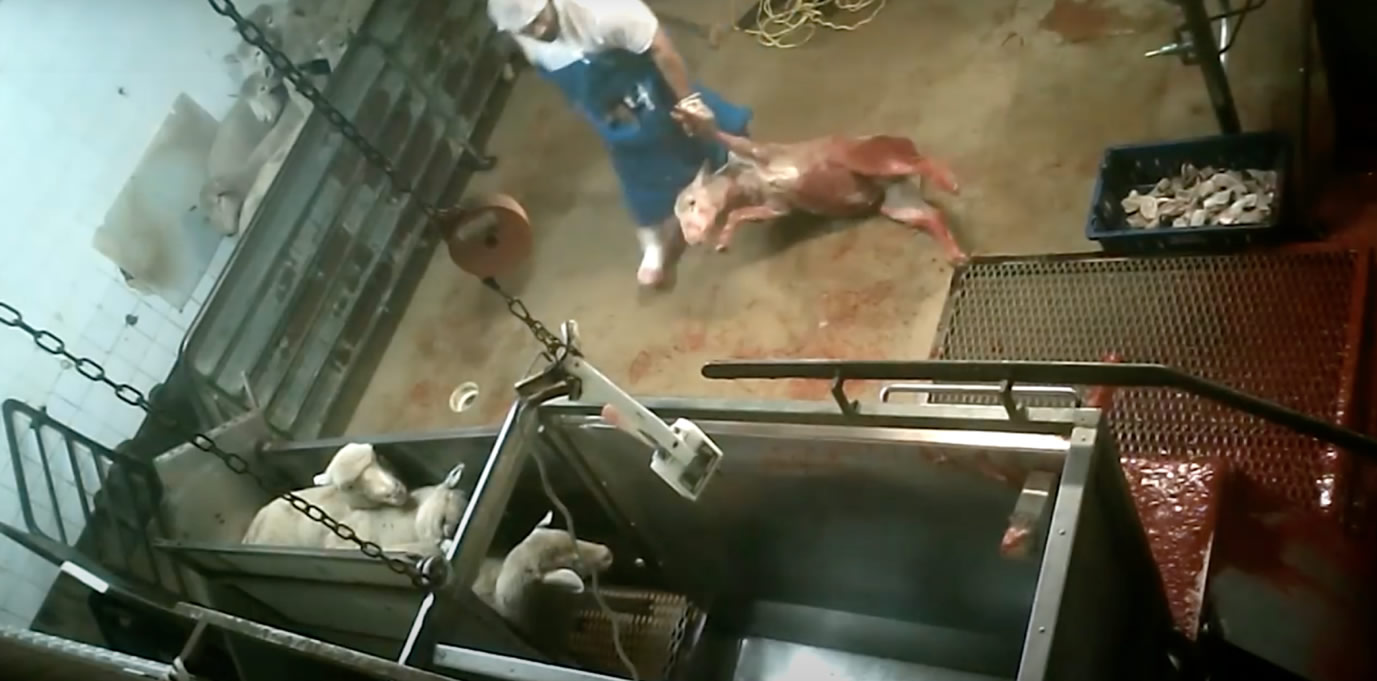
The wool industry and the sheep meat (lamb, mutton) industry are one and the same. All white-faced sheep in Australia are considered ‘dual-purpose’, used and ultimately slaughtered for both wool and meat. In fact, 70% of all sheep in Australia are merinos, considered by many as ‘wool sheep’, with a large sum of the remainder being merino cross breeds. All of these sheep will be shorn and slaughtered, exploited in both the wool and meat industry. (1)
Some sheep are shorn of their wool before they are slaughtered as young lambs, under a year old, at as young as six months of age. Other sheep are used for breeding and are regularly shorn throughout their life, until they are slaughtered at 5 to 6 years old. Only halfway into their natural lifespan, these sheep are killed because their wool becomes brittle and thin, just like human hair does as we age. Many of these older ‘cast for age’ sheep are sent on gruelling live export ship journeys – many slowly dying out at sea. (2)
Wool and the planet
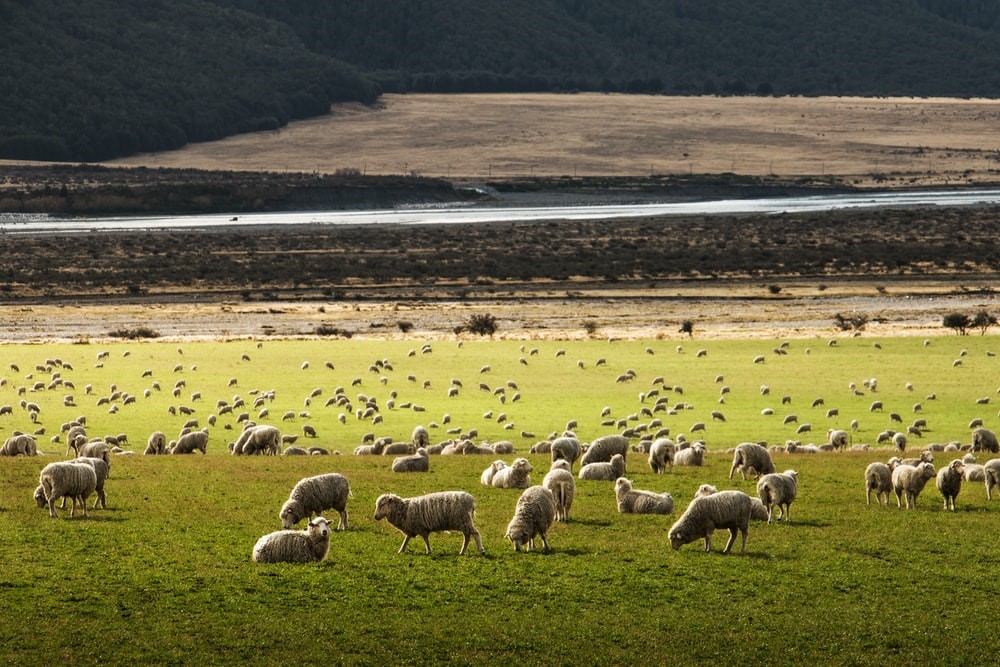
Wool is often praised as an extremely sustainable material because it is ‘natural’. However, it is not natural that 36% of all native Australian land has been cleared for the sheep meat and wool industry, with a total of 92% of all Australian land disturbance being tied to animal agriculture. All mining, infrastructure and crops grown for human consumption fall into the other 8%. (3)
Further, the farming of sheep is of great concern to the environment due to extremely high greenhouse gas emissions, particularly methane. Waste, generally from vast amounts of sheep faeces, causes pollution in natural waterways, resulting in eutrophication. Eutrophication causes changes in water oxygen levels and is often lethal for aquatic life. The Global Fashion Agenda found that wool was the fourth most environmentally impactful material to produce. (4)
Alternatives to wool
 via Opia
via Opia
There are plenty of alternatives to wool which are cruelty-free, and kind not only to animals, but to the earth. Knitwear made from hemp, sustainable and recycled cotton, bamboo lyocell, Tencel, recycled synthetics (including from ghost nets!) are all available. Make sure to read labels and buy garments free from any animal materials.
We’ve selected some of our favourite vegan, ethically made, sustainable knit pieces below. They come from brands and stores that either only produce and stock animal friendly garments, or which clearly label which of their garments are vegan.
These garments are more expensive than others, as the people who produced them were paid fairly. If you’re looking for more affordable ethical options, there are plenty of amazing second-hand cotton and man-made material knit products in stores, and on apps like depop. This is a great sustainable option, too.
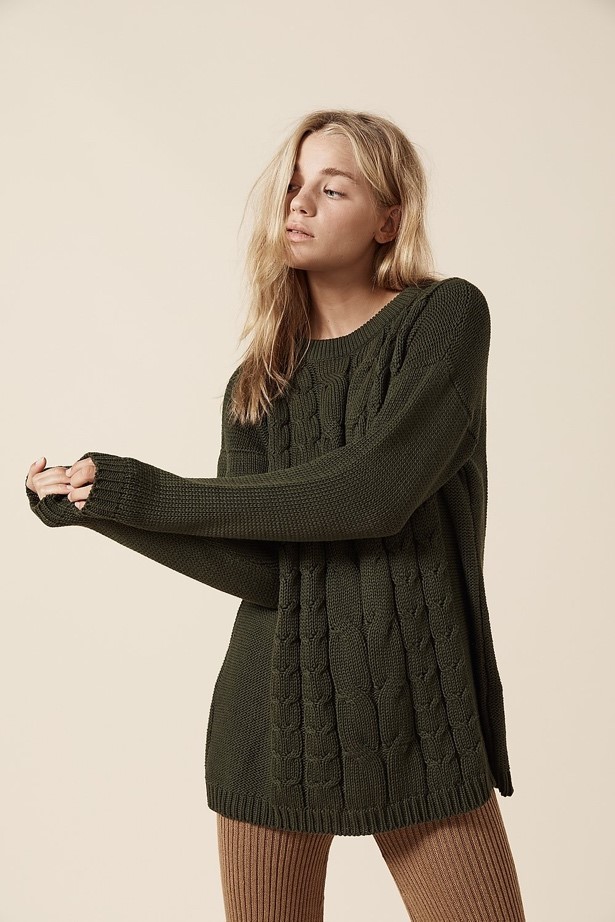
Ethically made Australian label Opia creates knitted garments like this cosy sweater and ribbed pant look.
Both garments are made from cotton, which will biodegrade if ever to go back to the ground.
People often believe cotton uses a significant amount of water to grow. This is true, however much of farming does. The global average water requirement for cotton is 9,359m3/ton. The global average water requirement for sheep meat is 10,400m3/ton, important to remember as the sheep wool and meat industries are one and the same. (5, 6)
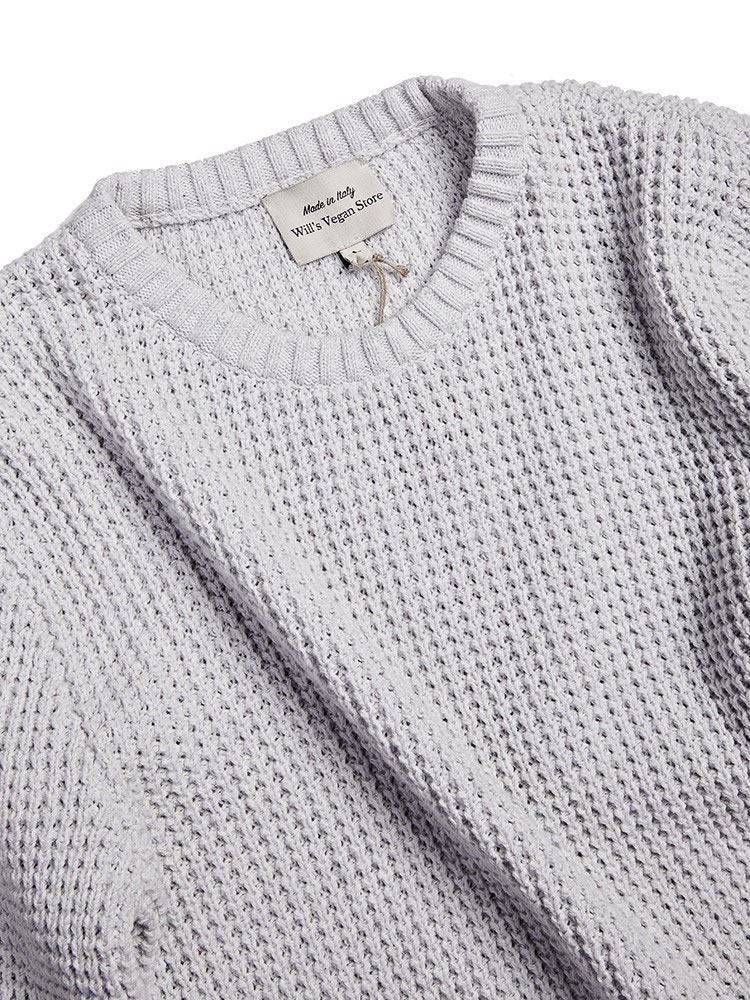
This ethical, carbon neutral label produces their vegan knitted garments – suited to all genders – from recycled polyester and cotton. The polyester they use has been re-spun into yarn out of recycled clothing waste.
Using recycled man-made materials is a great way to make the most of what has already been produced, reducing waste. If you’re concerned about microfibres, wash in a Guppy Friend bag which collects these.

Shopping via vegan online store Nois you’ll find lots of ethically made, fair trade, organic cotton knitted jumpers, beanies and scarves to keep you toasty in winter.
Fair trade cotton ensures that everyone on farm and involved in harvesting the raw fibre is treated and paid fairly.
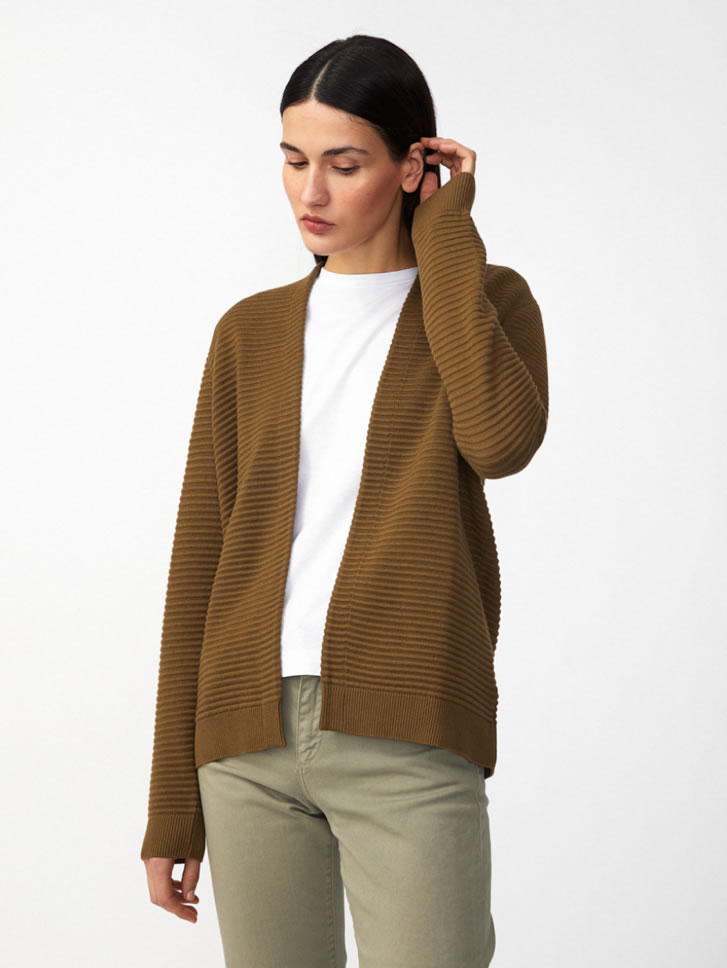
This ethically made label labels which of their products are PETA approved vegan and uses innovative eco-materials.
This cardigan for example, is made of Tencel, a kind of lyocell material which is made from sustainably harvested wood pulp, produced in a closed loop, recycling system.
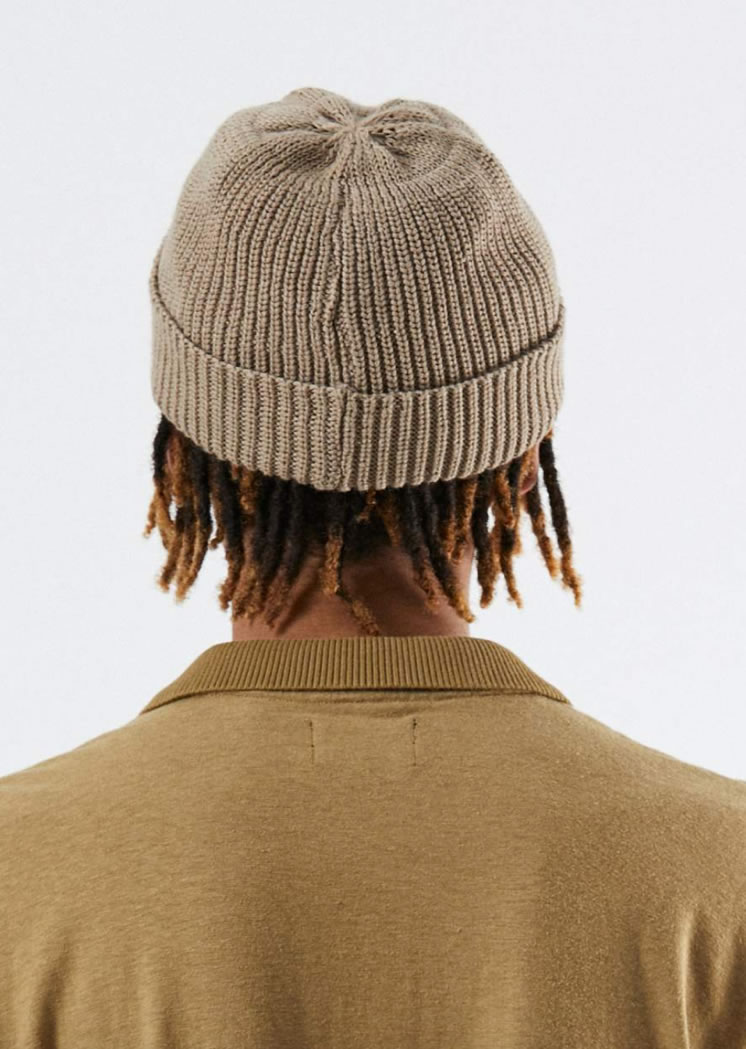
If you stick to the hemp clothing collection by Afends, you’ll get ethically made, vegan garments made from a blend of hemp and organic cotton – like this beanie.
Hemp is a water friendly crop which as a fabric is very strong and biodegradable.

